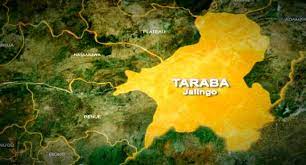
The World Bank has approved three key projects totaling $1.57 billion aimed at enhancing human capital in Nigeria, particularly focusing on health for women, children, and adolescents, as well as improving resilience to climate change impacts such as floods and droughts.
The new financing includes $500m for addressing governance issues that constrain the delivery of education and health (HOPE-GOV), $570m for the Primary Healthcare Provision Strengthening Program (HOPE-PHC) and $500m for the Sustainable Power and Irrigation for Nigeria Project (SPIN).
The HOPE-GOV program will target governance weaknesses in basic education and primary healthcare, aiming to improve financing, transparency, and performance management of education and health workers. This initiative seeks to boost the effectiveness of service delivery in these crucial sectors.
The HOPE-PHC program supports Nigeria’s health sector reforms, focusing on reproductive and maternal health services to significantly reduce mortality rates. It is financed through a $500 million International Development Association (IDA) credit, complemented by a $70 million grant from the Global Financing Facility for Women, Children, and Adolescents.
The SPIN project aims to protect communities from climate-related challenges by improving the safety of dams and water resource management for irrigation. It is projected to benefit up to 950,000 individuals through enhanced irrigation and increased agricultural productivity across 40,000 hectares.
World Bank Country Director for Nigeria Ndiamé Diop, emphasized the importance of investing in health and education to boost future employment opportunities and reduce poverty, particularly for vulnerable populations. He stated, “The SPIN program is timely and will protect Nigerians from floods and droughts, while also increasing hydropower generation.”
This financial support marks a significant step in addressing Nigeria’s pressing challenges and improving the living standards of its citizens.




